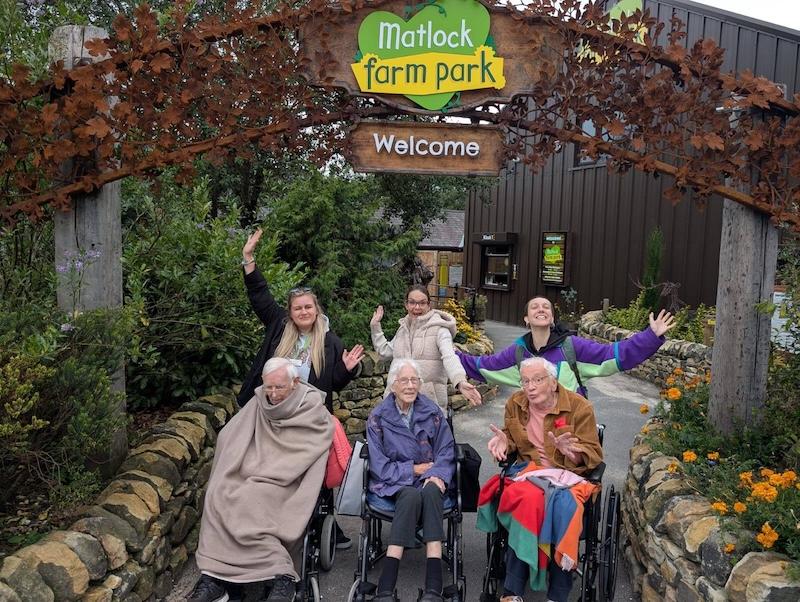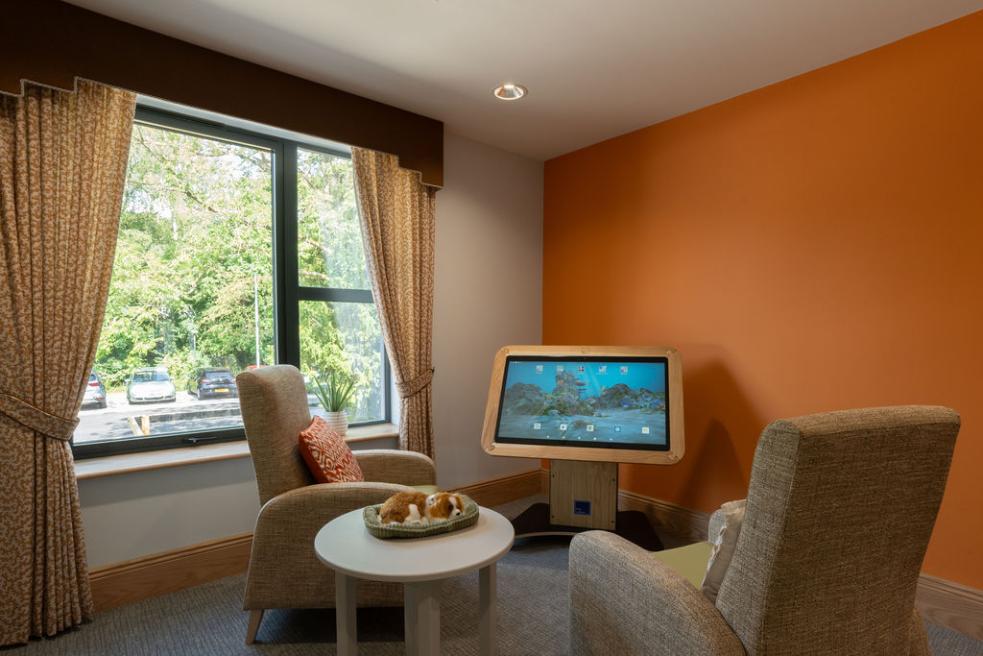How Can a Care Home Support Someone Living with Dementia?

Understanding Dementia Care Needs
What is Dementia?
A long-term progressive neurological condition that affects cognitive function, including memory, language, and reasoning. Dementia affects people in different ways, and its progression can vary from person to person. Early diagnosis and personalised care plans are crucial in managing symptoms and improving quality of life.

How Does A Care Home Help Someone Living With Dementia?
As dementia progresses, you may find it hard to complete everyday tasks. Qualified staff will help you with your daily living, working with dementia residents and assisting them with personal hygiene, food preparation and eating, and more. Staff are trained to manage dementia symptoms and provide support with daily tasks.
Moving into a care home isn't always an easy decision, but moving into a care home may be best for someone with memory loss issues to get a better quality of life.
Assessing Dementia Care Needs
A person with dementia may lack the mental capacity to make decisions about their care and well-being. Family members or carers may need to make decisions on their behalf, taking into account their best interests. A financial assessment can determine the person’s eligibility for financial support with their care costs.
If you're in a caring role for a friend or family member and you feel you are no longer able to safely look after them, professional help may be the right option for you. Talk to local dementia care home teams to find out more and get an assessment for your loved one.
Choosing the Right Care Homes
Types of Care Homes
Residential care homes provide personal care and support with daily tasks. Nursing care homes in Matlock offer 24-hour care from qualified nurses for people with complex health needs. Some care homes specialise in working with dementia residents and provide a safe and secure environment.
Some homes are split up into their speciality, or they might have different services under one roof.
The Decision-Making Process
The resident and their loved ones should be involved in the decision-making process to ensure the person’s care needs are met. It’s essential to consider the person’s preferences and wishes when choosing a care home.
Benefits of Care Homes for People with Dementia
A Safe and Supportive Environment
Care homes provide a safe and secure environment for people receiving dementia care in Matlock. Care homes can help people with dementia remain in control and more confident.
Personalised Care and Support
Care homes offer personalised care and support tailored to the person’s needs and preferences. Staff work closely with residents with dementia to create a care plan that meets the person’s needs. Care homes can provide a sense of purpose and routine, reducing feelings of confusion and disorientation.
Managing Property and Financial Affairs
Family or carers may need to manage the person’s property or finances. A lasting power of attorney can be used to make decisions on the person’s behalf. A person living with dementia may not be able to make judgments for themselves. A care home can help you by working with dementia residents and managing financial aspects if you believe a resident is making poor decisions that will impact their finances and ability to pay for essential items.
Finding the Right Care Home
Research and Evaluation
Researching and evaluating care homes is crucial to finding the right one. Family and carers should consider the person’s needs and preferences when evaluating care homes. Care homes should be evaluated based on their quality of care, staff training, and facilities.
Visiting and Meeting Care Home Staff
Visiting care homes and meeting staff can provide valuable insights into the care and support provided. Meeting with care home staff can help determine if the care home is the right fit for the person.
Carer Support and Resources
Family members and carers may need support and resources to care for a loved one with dementia. Care homes can provide support and resources for family members and carers. Other carers and support groups can also provide valuable support and guidance.
Finding the Best Support Options
Finding the right care home and support options can be challenging, but it’s essential to prioritise the person’s care and well-being. Family and carers should work together to find the best support options for the person with dementia. Care homes can provide a safe and supportive environment for people with dementia, and family members and carers can provide valuable support and guidance.
Dementia Caring Experts at Darcy House
At Darcy House, we offer specialised care tailored to individual needs. Talk to our expert dementia care providers today for a personal care plan for dementia residents.






